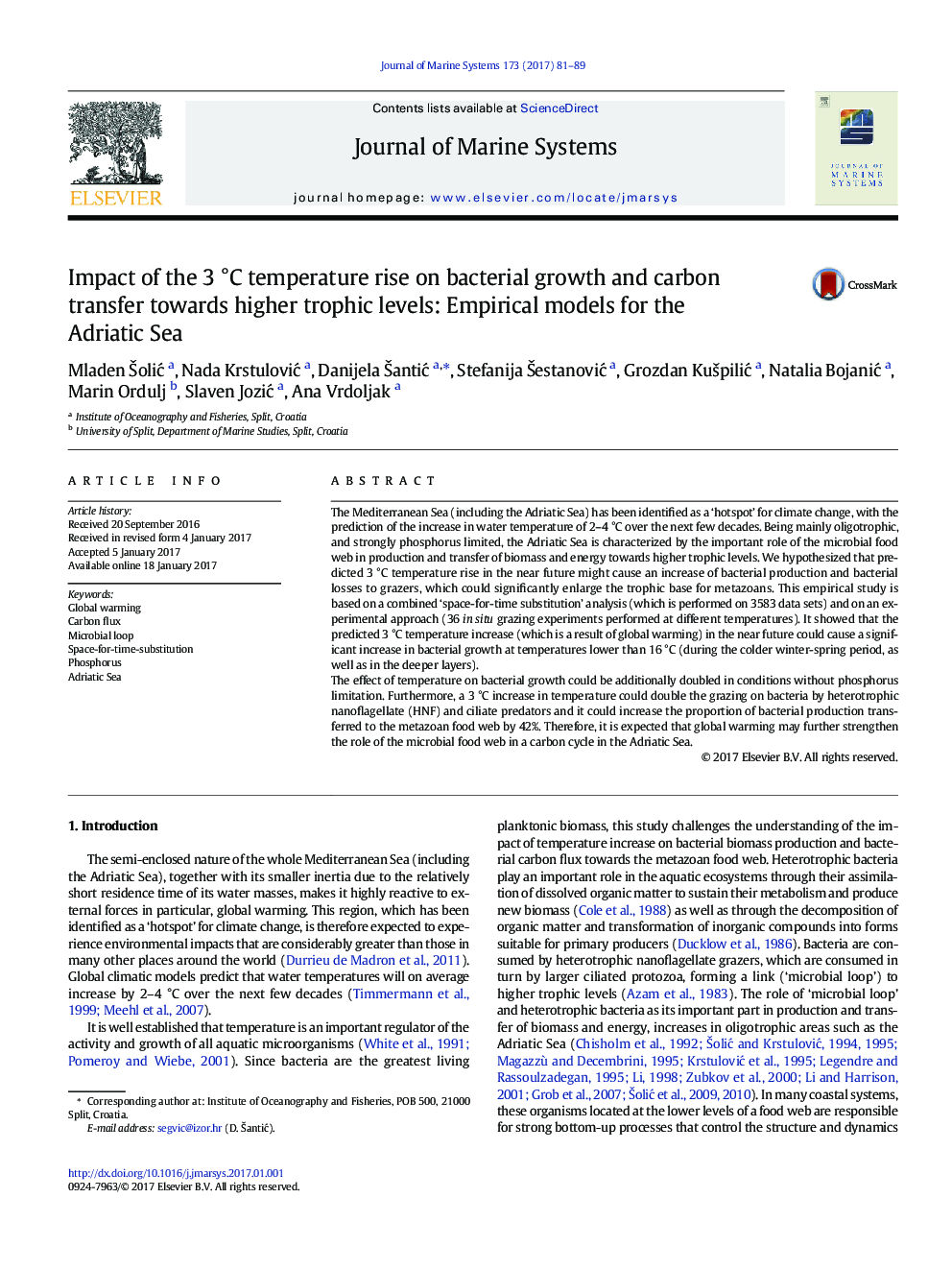| کد مقاله | کد نشریه | سال انتشار | مقاله انگلیسی | نسخه تمام متن |
|---|---|---|---|---|
| 5765978 | 1627257 | 2017 | 9 صفحه PDF | دانلود رایگان |

- Temperature effect on bacterial growth is more significant at lower temperatures.
- Availability of phosphorus doubled temperature effect on bacterial growth.
- Bacterial carbon flux towards metazoan food web increases with temperature.
- Global warming could strengthen the role of microbial food web in a carbon cycle.
The Mediterranean Sea (including the Adriatic Sea) has been identified as a 'hotspot' for climate change, with the prediction of the increase in water temperature of 2-4 °C over the next few decades. Being mainly oligotrophic, and strongly phosphorus limited, the Adriatic Sea is characterized by the important role of the microbial food web in production and transfer of biomass and energy towards higher trophic levels. We hypothesized that predicted 3 °C temperature rise in the near future might cause an increase of bacterial production and bacterial losses to grazers, which could significantly enlarge the trophic base for metazoans. This empirical study is based on a combined 'space-for-time substitution' analysis (which is performed on 3583 data sets) and on an experimental approach (36 in situ grazing experiments performed at different temperatures). It showed that the predicted 3 °C temperature increase (which is a result of global warming) in the near future could cause a significant increase in bacterial growth at temperatures lower than 16 °C (during the colder winter-spring period, as well as in the deeper layers).The effect of temperature on bacterial growth could be additionally doubled in conditions without phosphorus limitation. Furthermore, a 3 °C increase in temperature could double the grazing on bacteria by heterotrophic nanoflagellate (HNF) and ciliate predators and it could increase the proportion of bacterial production transferred to the metazoan food web by 42%. Therefore, it is expected that global warming may further strengthen the role of the microbial food web in a carbon cycle in the Adriatic Sea.
Journal: Journal of Marine Systems - Volume 173, September 2017, Pages 81-89